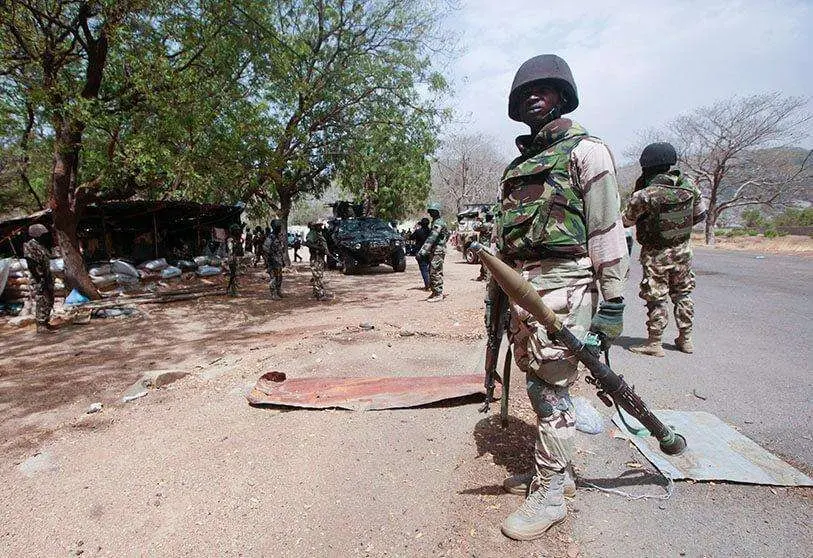Why is jihadist terrorism spreading to the countries of the Gulf of Guinea?

Jihadist terrorism in the Sahel has spread uncontrollably into the northern Gulf of Guinea countries.
ACLED has recorded 26 organised attacks in northern Benin attributed to Jama'at Nusrat al-Islam wal-Muslimin (JNIM) between 1 November 2021 and 14 September 2022.
The modus operandi of these groups is to take control at night, as they have done throughout the Sahel, travelling stealthily in convoys of motorbikes with a single illuminated headlight to organise attacks and escapes and descend into villages where they receive clandestine support from their sympathisers. These attacks are unpredictable and therefore more difficult to prevent.
Similarly, jihadists also gain a foothold in local communities by preaching and infiltrating Koranic schools and take advantage of protected nature reserves to establish themselves and hide.
Jihadists operating within these nature parks have displaced civilian authorities and eliminated security agents through threats and assassinations.
Moreover, it is extremely difficult to track terrorists in these wilderness areas during the rainy season, when visibility is reduced by thick vegetation and movement is hampered by seasonal waterways crossing the roads. Thus, nature reserves have become strategic spaces that jihadists use to move money, weapons and hostages.
Gulf of Guinea countries such as Côte d'Ivoire, Ghana, Togo and Benin are home to a total of approximately 588 underfunded protected reserves covering 142,703 square kilometres where jihadists operate at ease.
It is clear that Benin, like its neighbours Togo and Côte d'Ivoire, must enact comprehensive strategies to help stem the flow of jihadist attacks in their countries and improve social conditions that detract from local jihadist recruitment.
Coastal countries such as Benin, Togo, Ghana and Côte d'Ivoire are seeking to strengthen their military posture to secure their borders with Mali, Niger and Burkina Faso, following recent terrorist attacks, and are very concerned about the recruitment of jihadist groups within the northern population.
Countries in the region have tightened security in vulnerable areas, including Ghana, which has so far been spared attacks.
Likewise, since 2019, studies on the Sahel show that jihadist groups were already connected to coastal states, either for logistical or operational support, but also for funding.
Jihadists do not occupy territory in the coastal states, but infiltrate the northern regions where they carry out sophisticated attacks.
Togo first experienced a jihadist attack in May 2021. The first known deadly attack in Benin was last December, when two soldiers were killed near the border with Burkina Faso. In Côte d'Ivoire, four members of the security forces were killed in 2021, after 14 in 2020. These attacks are only possible thanks to good intelligence-gathering capabilities and the "complicity" of locals.
Increased recruitment among border populations is a major threat also given the difficult living conditions that can easily encourage desperate people to terrorist camps.
Last week, a widely shared propaganda video featuring two jihadists speaking the local language in northern Benin called on the population to join them and threatened those who collaborate with the state.
Gulf of Guinea states must urgently respond to the needs of these people, making them feel protected by the presence of security forces rather than allowing them to seek protection from these groups.
Terrorists are simply replicating in these countries the mechanisms and modes of action that have been successful in the Sahel countries. They settle discreetly in poor areas (withdrawal zone, observation zone) and attack all the symbols of the state (customs posts, police, gendarmerie, town halls, prefectures, etc.), initially favouring so-called "soft" targets (i.e. underdeveloped and inversely defended as examples of military camps or command centres). They are based on frustrated populations in conflict with the state and instrumentalise and exacerbate existing inter-ethnic/social conflicts; eventually, they take hold and supplant the state in all sovereign domains.
In short, the underlying problem is therefore not terrorism, but the absence or weakness of governance of which it is a manifestation. Nor is it simply a problem of budgetary resources, but the way in which too many states use these funds; reinforcing the sense of injustice and revolt against those in power. Stabilisation of countries in crisis or in the making must be tackled comprehensively; development and security are the main keys that are struggling to be implemented. The credibility of states in sovereign matters is a first step.

